“Being A Severely Sensitized Hypochondriac Was The Worst And Best Thing That Has Ever Happened To Me. Lessons Were Learned And Perceptions Have Changed.”
Hypochondria or health anxiety is a mental disorder marked by constant fear of being seriously ill, despite medical reports that prove good health. When overwhelming fear or anxiety about the presence of some underlying disease persists for 6 months or more, then it may be classified as hypochondria.
First… The Facts: The Daily Life Of A Hypochondriac
- The attention of hypochondriacs may be concentrated on one specific organ like the heart or lungs, or one specific illness like cancer, or the focus may constantly change from fear of one ailment to another.
- People with health anxiety may believe normal functions like increased sweating, heart beats, bowel movements, etc., to be symptoms of some severe underlying disease. They may also consider minor problems like slight swelling of lymph nodes, runny nose, rash, or tiny sore to be a severe issue.
- People who are worried about their health may keep talking about their physical well-being and frequently visit their doctor. They may also spend several hours on the web trying to match a specific illness to their existing/imaginative symptoms.
- Some people may avoid seeking medical attention because they fear that the medical tests may reveal that they actually suffer from a severe disease. Hypochondriacs may thus avoid places, contact with people, and activities that can cause bodily harm or increase risk to illnesses.
- Negative lab test results do not help alleviate the anxiety in hypochondriacs. In some cases, negative test results may even worsen their fear of being sick due to belief of the patient that their problem is not being understood, or believed by anyone and that their illness may never be correctly diagnosed and cured.
Causes of hypochondria 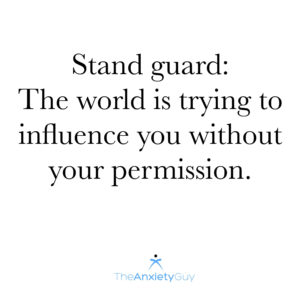
- A variety of other mental health challenges like panic disorder, major depression, generalized anxiety disorder, and OCD/obsessive-compulsive disorder, etc., have been found to have links with hypochondria.
- Hypochondria typically begins in early adulthood. It may occur after illness, or death of a loved one, or after recovery from a severe disease.
- It is theorized that hypochondriacs have low tolerance levels for pain. Hence, they feel and observe even the minutest internal sensations more than others.
- Excessive stress, exaggeration by media about an epidemic, etc. are some other factors that can trigger health anxiety.
- Incidence rate of health anxiety is almost the same in both males and females.
- In some cases, people may begin excessively worrying about their health as they near the age when either their mother or father passed away. This is more so if the parent suffered a premature death.
General treatments for a hypochondriac
- One of the best ways to treat hypochondria and alleviate associated symptoms is CBT or cognitive behavioral therapy.
- Meditation, breathing techniques, and other mental and physical therapies are also great at lessening symptoms.
- Doctors may prescribe selective serotonin reuptake inhibitors/SSRIs and other drugs in severe cases of health anxiety
- Eating a healthy and balanced diet; regular exercising; avoiding tobacco, alcohol, coffee, and other stimulants; and other lifestyle changes can help prevent deterioration of symptoms and help in treatment.
Hypochondria And The Rebound Effect
Now that you have a general idea of some of the causes and tools against hypochondria, let’s understand the rebound effect.
You are the one suffering from health anxiety, and you are also the one who suffers from what I like to call the ‘rebound effect.‘ What is the rebound effect? The best way to explain the rebound effect is through a scenario that you might have already gone through:
You’re on your couch watching TV, half of your attention is focused on what you’re watching and the other half is focused on what you’re feeling inside. You carefully notice any sensations of anxiety in your body that pop up as you turn the channels on the TV. All of a sudden you run into the DR OZ Show, and his topic of the day could be related to a particular physical illness. He mentions the symptoms that might connect a person to that particular illness, and BOOM.
You begin to think those two dreaded words that every hypochondriac constantly goes through… What If!
What if my symptoms of anxiety aren’t what I think they are, but are connected to the illness that DR OZ is talking about in his show! What if I’ve waited too long to get these symptoms checked, could I be doomed? Finally, what if it gets worse and these symptoms I thought were related to anxiety manifest to other parts of my body!?
You are now experiencing the rebound effect…
A hypochondriac is always ‘checking in’ to see how strong their symptoms of anxiety are at any moment, they also constantly check to see if new symptoms of anxiety have appeared out of the blue. The cycle of panic begins, and the 6 step process that their imagination leads them to begins to take shape:
1) Either through what someone says, or though their own memory the questions of what this symptom of anxitey could be begin.
2) The ‘what if’ questioning begins to run wild in the health anxiety sufferers mind.
3) Their bodies begin to feel the effects of this kind of thinking, and the symptoms of anxiety heighten. A full blown panic attack could be on the horizon.
4) They quickly look online for answers either through anxiety forums, groups or search engines
5) They are comforted by people in those anxiety forums and groups that they are fine, and they are reassured that they are not in a cycle of impending doom but rather a victim of their catastrophic thoughts
6) Anxiety lessens, or heightens and more research is done
At this point the rebound effect is firmly strapped into their unconscious, the next episode of this happening could be on the same day or very close by, but a deep feeling of sensitization has begun. This is the type of incredible imagination someone with an anxiety disorder can have, because of how alarming and real the symptoms of anxiety can be!
The other danger comes in the form of turning to your ‘comfort group’ for help
I’m a firm believer that MOST anxiety forums and groups online do more harm then good. Why? Because it’s a cycle that becomes the norm for the hypochondriac. They turn power over to others, yes they are temprarily comforted and helped out, but at the end of the day they are always left with unanswered questions.
A person with an anxiety disorder can do very little for another person, other then re-assure them that they are safe
As I mention through my Me Vs Myself On And Off The Court eBook (Sign Up On Main Page) I’ve went through years of the rebound effect in my own 6 year battle with an anxiety disorder. I made many mistakes, and I’ve also found true and lasting natural solutions for my health anxiety.
You have now pinpointed whether or not you truly have hypochondriasis (health anxiety), and you’ve also learned more about what I like to call the rebound effect. So the question now is what do we do about it in a way that will create lasting change?
How do we break the never-ending cycle that the rebound effect and our health anxiety is causing you? To answer that question I should share with you a quote I heard once that has stuck with me for a while and that quote is:
“Only those who have patience to do the simple things perfectly, ever acquire the skills to do difficult things easily.”
So today after reading this post our goal is to start simple, master those simple things, take control of what is adding to our health anxiety and hypochondriac state, and overcome your health anxiety one small step at a time. So are you ready? Let’s go!
True Progress
The first thing I want you to do is grab a piece of paper and put a line right through the middle.
On the top left side of the paper I want you to write down the words ‘True Progress,’ and on the other side of the line I want you to write down ‘A Cycle Of Coping.’
I want you to think back to some of the times when you’ve felt free from your worries. Some of these times could have been when you were hanging around a certain friend, a certain job you were involved in, a certain activity that you did, a sport that you were commit to.
Mindfulness
Turning off our DMN (default mode network) this is in facet conditioned to see the greatest fear in everything takes absorbtion in a perceptual or cognitive task. This change up of focus from our fears to something we can see, hear, feel shifts our attention from our internal world to our outer world. As well as turn from a narrow viewpoint to a broader viewpoint.
This will take some effort from you to go back in time slightly, and remember what caused you to feel like you were in a different state through your body and your thoughts.
A Cycle Of Coping
On the right side of the paper you have the title of; A Cycle Of Coping, and on this side it’s time to think about and rid yourself of the things that keep you moving in circles around your identity as a hypochondriac. This list could contain things you do unconsciously that you are just now starting to realize is adding to the rebound effect and your health anxiety cycle.
But we need to bring them out into the open if we’re going to stop your health anxiety once and for all. You could add things like turning to my ‘safety net’ (other anxiety sufferers online) for reassurance every time a new symptom of anxiety appears, calling my family doctor to set up an appointment, constantly researching my new symptoms of anxiety online through search engines like google or other anxiety groups.
This list is a huge step forward, but I’m warning you now some of the things you add to this list you won’t like. But deep down you will know they should belong to the cycle of coping list simply because this has been your comfort net for so long, and yet you are still in the same hypochondriac state as you were in weeks, months or even years ago.
“The realization of what feeds your health anxiety, and what will prevent you from falling into the cycle of coping is a powerful exercise because you deserve a life better than this… don’t you?”
This could be the most important 10 minutes of your life!
I don’t want you to rush this exercise, I want you to think it through and fully realize what’s helping you and what’s hurting you. Letting go of some of those daily unconscious comforts such as turning to ‘DR Google’ for answers for example, could be difficult at first but in time you’ll see just how much stress and anxiety you’ve let go of simply by following through with your list.
Don’t forget to hang the list on your fridge door, or a place where you’ll run into it in your home
You have to be reminded of this list consistently, so make sure that it’s visible. Each time you are tempted into doing something from the cycle of coping list don’t punish yourself, but just realize and understand that this was the old you.
To begin the changes you truly want deep down it’s time to completely rid yourself of the list on the right and fully commit to the list on the left, only then will freedom from your anxious thoughts and your health anxiety condition begin to manifest.
The End The Anxiety Program Is a CBT Based Approach To Empowering People Past Their Health Anxiety. Learn More About This Powerful Approach Today.


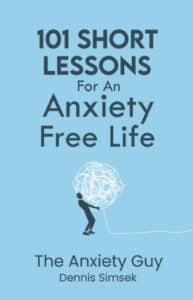

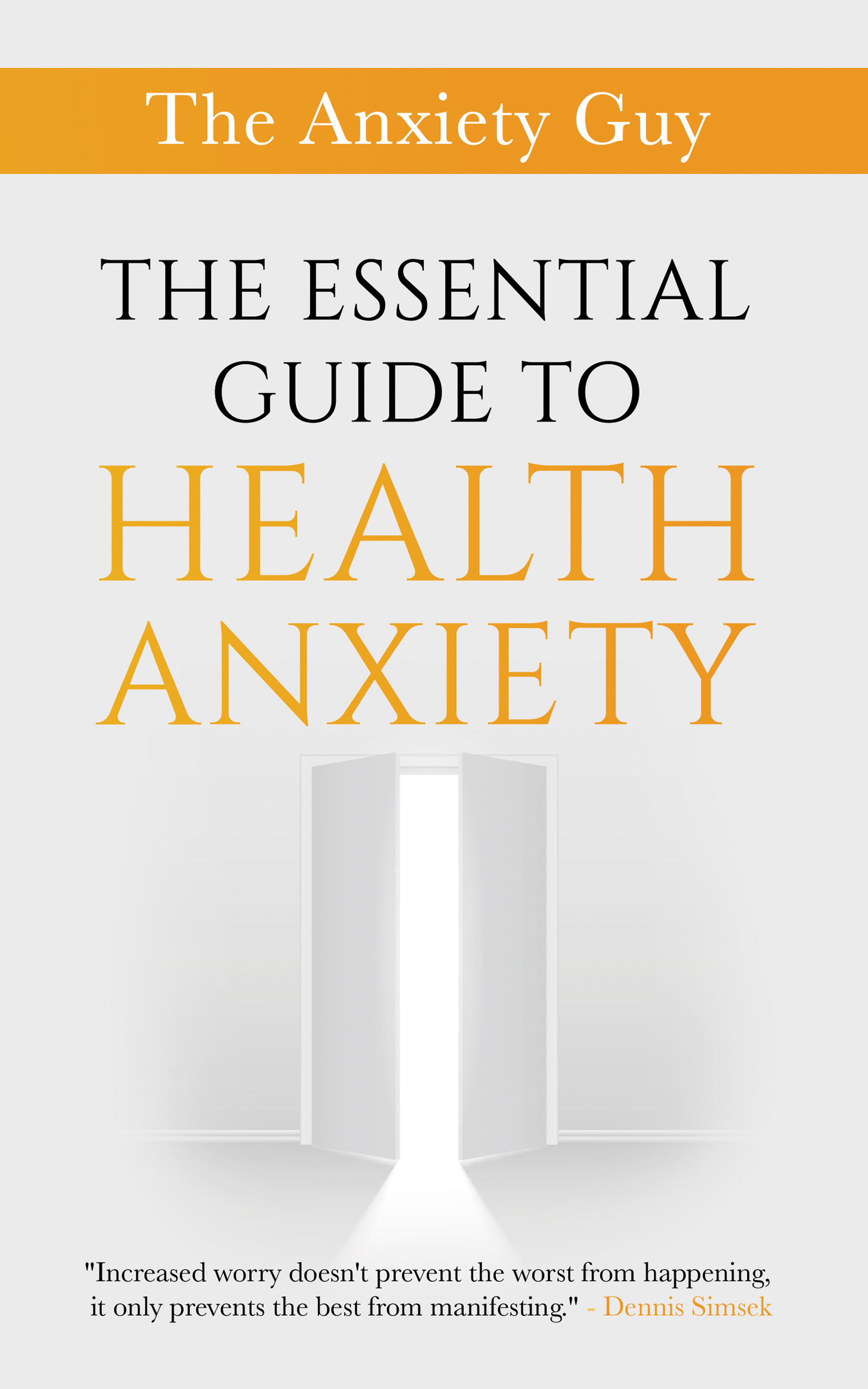
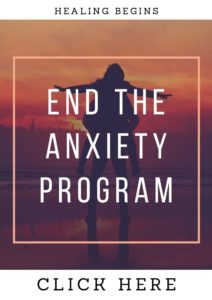
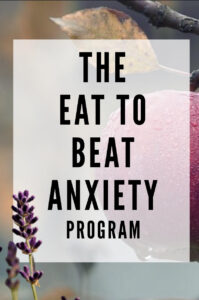













I will be trying this excercise tonight. I have been suffering health anxiety since Nov 2016 i see a cbt qualified phycologist once fortnightly but still cnsnot seem to get out if the rut of hypochondriac 🙄 I have a beautiful 16mo old little boy and this is becoming debilitating! I have had enough and i refuse to keep living life like this! I came across your videos & podcasts around 1 month ago and was so relieved to find something so powerful and based around health anxiety as you really dont hear much about it or can find much on it etc so to find this has been so relieveing but now its time to actually start making changes in my life i an 24 years old and i refuse to let this take hold of me any longer! Thank you dennis and i cant wait to hear more arojnd overcoming health anxiety! 🙏🏼 thank you!
Great mindset Megan.